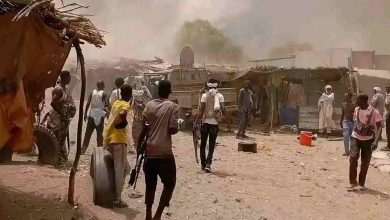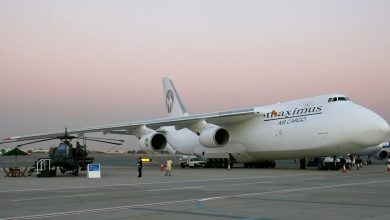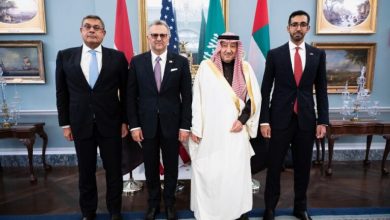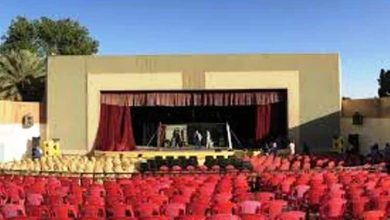Reports
Al-Burhan in Juba: Timing and the Role of South Sudan in the Sudanese Crisis
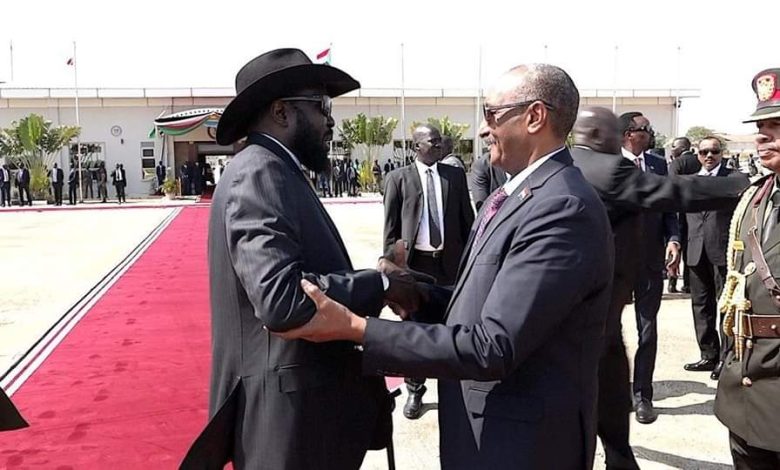
Sudan Events – Reports
As part of Sudan’s recent intensive diplomatic efforts, significant visits to neighboring countries affected by the crisis have taken place. Visits to Eritrea, Ethiopia, and South Sudan are attempts to strengthen relations with friendly nations like Eritrea, possibly neutralize Addis Ababa, and maintain balance in Juba, which appears crucial at this stage.
The Visit to Juba
Sudan’s Transitional Sovereign Council Chairman, General Abdel Fattah Al-Burhan, visited Juba on Wednesday and held talks with South Sudan’s President Salva Kiir Mayardit to enhance bilateral relations and advance mutual cooperation. Sudanese Foreign Ministry Undersecretary, Ambassador Hussein Al-Amin, stated that the visit aimed to maintain ongoing consultations between the leadership of both nations, offering support to President Salva Kiir and the South Sudanese government amidst developments in the South. Al-Burhan also briefed Salva Kiir on the situation in Sudan, including the rebellion by the Rapid Support Forces (RSF), highlighting advances made by the Sudanese Armed Forces and allied troops across all fronts. Discussions also covered cooperation in oil, trade, border security, and revitalizing bilateral relations.
Positive Outcomes
South Sudan’s Foreign Ministry Undersecretary, Majak Philemon Majok, emphasized that the visit reinforced strong ties between the two countries. Key topics included cooperation in the oil sector, border security, and economic and trade collaboration. Majok expressed hope that the visit would strengthen bilateral relations, benefiting the peoples of both nations. Sudan’s ambassador to Juba, Lieutenant General Essam El-Din Karar, added that the meeting with South Sudan’s Vice President Riek Machar was constructive and addressed cooperation-related issues.
No Government in Sudan?
On the eve of Al-Burhan’s visit, South Sudanese Vice President Taban Deng remarked there was no government in Khartoum, criticizing what he termed the “Port Sudan Government” for neglecting the suffering of Abyei residents. He urged ambassadors and organizations in Juba to visit Abyei to witness the hardships faced by its people, calling for international attention to the region’s humanitarian crisis. Deng highlighted the critical role of Atong Airport in delivering aid and connecting Abyei to the broader region, urging the reopening of the airport for humanitarian and commercial purposes.
South Sudan’s Disavowal
Hours after Deng’s statements, South Sudan’s Minister of Presidential Affairs, Chol Mawut, disassociated the government from Deng’s remarks. He reaffirmed South Sudan’s respect for Sudan’s sovereignty and commitment to regional stability.
A Dual Role?
Deng’s comments reflect the dual role South Sudan plays in Sudan’s crisis. While President Salva Kiir and his government emphasize strong ties with Sudan, other actions suggest support for the RSF. This includes hosting RSF second-in-command Abdel Rahim Dagalo in Juba, reports of RSF collecting transit fees for South Sudanese oil passing through Port Sudan, and involvement of South Sudanese tribespeople in Sudan’s conflict. These factors raise questions about South Sudan’s position on the war in Sudan.
Sudan’s Focus
Sudanese Foreign Ministry Undersecretary Hussein Al-Amin stated that Al-Burhan’s visit aimed to reassure South Sudan on Sudan’s situation and enhance cooperation in oil, border security, and other shared interests. Discussions did not address Deng’s remarks or Dagalo’s visits to Juba, focusing instead on mutual priorities.
Negative Balance
Political analyst Mohamed Mohamed Khair described South Sudan’s role in the Sudanese crisis as a “negative balance,” influenced by pressures from the UAE while maintaining relations with Sudan’s government and military. Khair noted that Vice President Deng’s relationship with the UAE shaped his comments, reflecting broader regional dynamics. He stressed the economic necessity of agreeing on oil transit between the two nations, predicting its resumption once Sudan regains control over strategic areas.
Dinka Neutrality
Khair believes Al-Burhan seeks Dinka neutrality in Sudan’s conflict, noting that RSF maintains commercial ties in South Sudan. He also highlighted financial challenges facing the RSF, marked by reduced UAE support, leading Dagalo to repeatedly seek funds in Juba. Regarding Abyei, Khair dismissed Deng’s authority to speak on the issue, emphasizing existing protocols managed by figures from the region.
This dynamic underlines the complexities of South Sudan’s role in Sudan’s ongoing crisis and its potential impact on regional stability.
